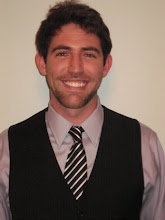Finally finished this book! This has been my reading project of the summer and am happy to have completed it.
The famous catch phrase of the book is "Who is John Galt?", which you may have seen on signs at Tea Party rallies. John Galt becomes portrayed as Rand's ideal man, who promised to stop the engine of the world and whose mission would be completed once the lights of New York City were extinguished. Galt considers the direction of the country a moral, social, and individual affront to his life and is determined to stop the continuation of policies--policies supposedly for the "social welfare" and impose highly regulated restrictions on industrial business. Galt, who remains a mystery most of the book, working behind the scenes, convinces each of the major industrialists to remove their mind, talent, and energy from society with the intention of eventually bringing the social changes to a halt.
Galt, however, is not the main protagonist in the book, but remains somewhat of an unknown ideal until the last 400 or 500 pages. The main character of Atlas Shrugged is Dagny Taggert, VP of Taggert Transcontinental Railroad, who although disagrees with the direction of the country struggles to completely dessert her love and life of managing the railroad.
I have yet to read a more relevant fiction book as far as modern day political economics. Ayn Rand economic views are unabashedly capitalistic with followers such as Alan Greenspan and Rand Paul (although according to a Time Magazine article on the KY senator hopeful there is no connection between the author's last time and the politician's first name). http://www.time.com/time/politics/article/0,8599,1992201,00.html - see page 2
Many people see a similarity in the extreme political and economic policies presented in Ms Rand's book as in today's society. This article talks about how sales for Atlas Shrugged increase when the economy tanks, especially with heavy government regulation. (www.cato-at-liberty.org/2009/05/18/what-caused-atlas-shrugged-sales-to-soar/). I certainly don't think that things today have come close to approach the policies that are presented in Rand's novel, but it provides for interesting economic literature.
Those who have read The Fountainhead, also by Rand, will find similar themes present in Atlas Shrugged but expounded upon. The Fountainhead deals with the themes on an individual level while Atlas Shrugged discusses those themes within a broader social context.
I don't know that I completely agree with Rand's philosophy of objectivism or her promotion of selfishness but she certainly makes an interesting case for her argument. And there are certainly some aspects of her philosophy, such as refusing to compromise one's values, that I can subscribe to.
All economic, social, and political commentary aside, Rand's character development is about as detailed as I've ever encountered. It's obvious she knows her characters inside and out and (for the most part) keeps them consistent throughout her novel. This book is certainly a commitment to read and the first 400 pages are pretty tough to wade through but they set up the remaining 700 pages quite nicely and they certainly read much more quickly. I personally think one should read Atlas Shrugged simply to be familiar with her argument and how it possibly relates to today's economy and politics - even, and especially, if you don't agree with it.
Subscribe to:
Post Comments (Atom)

This is one of my all-time favorite books. I read it probably close to 10 years ago now, and finished it in about 2 weeks because I could not put it down. Rand is brilliant, whether one agrees or disagrees with her philosophy. I actually agree with most of her political and economic views, but obviously I hold to pretty much the antithesis of her religious views. It was actually really hard for me to reconcile how she could be so opposed to what I hold as ultimate truth (her being an atheistic humanist of the most extreme order and me being a Bible-believing Christian), and yet come to so many of the same conclusions as me in regards to government, politics, economics, etc...yet for completely opposite reasons. Her beliefs are rooted in complete selfishness, whereas I hope to be the opposite kind of person, and yet we both come to the same conclusions about what foundational principles will cause society to function the best. She vividly portrays how socialism will ultimately cause a society to fall apart (and she lived through it in Russia), whereas capitalism ultimately tends to benefit everyone (or at least alot more people). I could go on and on, but I'll refrain.:) I wish there were a Christian to write as brilliant of a portrayal of the Christian worldview in novel form as she did of her worldview. And I have also read the Fountainhead, and just started on We the Living.
ReplyDelete